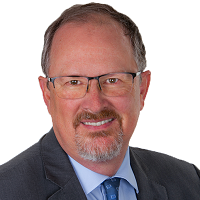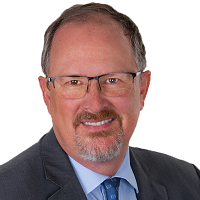When is a 'Fiduciary' Truly Acting as a Fiduciary?
The Department of Labor's fiduciary rule, which went into effect on June 9, aims to protect retirement investors from financial adviser conflicts of interest, but consumers still must watch out for themselves.


Profit and prosper with the best of Kiplinger's advice on investing, taxes, retirement, personal finance and much more. Delivered daily. Enter your email in the box and click Sign Me Up.
You are now subscribed
Your newsletter sign-up was successful
Want to add more newsletters?

Delivered daily
Kiplinger Today
Profit and prosper with the best of Kiplinger's advice on investing, taxes, retirement, personal finance and much more delivered daily. Smart money moves start here.

Sent five days a week
Kiplinger A Step Ahead
Get practical help to make better financial decisions in your everyday life, from spending to savings on top deals.

Delivered daily
Kiplinger Closing Bell
Get today's biggest financial and investing headlines delivered to your inbox every day the U.S. stock market is open.

Sent twice a week
Kiplinger Adviser Intel
Financial pros across the country share best practices and fresh tactics to preserve and grow your wealth.

Delivered weekly
Kiplinger Tax Tips
Trim your federal and state tax bills with practical tax-planning and tax-cutting strategies.

Sent twice a week
Kiplinger Retirement Tips
Your twice-a-week guide to planning and enjoying a financially secure and richly rewarding retirement

Sent bimonthly.
Kiplinger Adviser Angle
Insights for advisers, wealth managers and other financial professionals.

Sent twice a week
Kiplinger Investing Weekly
Your twice-a-week roundup of promising stocks, funds, companies and industries you should consider, ones you should avoid, and why.

Sent weekly for six weeks
Kiplinger Invest for Retirement
Your step-by-step six-part series on how to invest for retirement, from devising a successful strategy to exactly which investments to choose.
Much has been written about the new Department of Labor rule requiring most financial advisers be held to a “fiduciary” standard. Until the rule went into effect, a majority of financial advisers were legally held to a watered-down requirement requiring “suitability” of advice. Two questions come to mind:
- What is the difference between advice that meets the fiduciary standard and advice that’s merely suitable?
- How do I know if a fiduciary is truly acting as one?
The best way to explain the concepts is through examples. Frank is 65 years old, very conservative and concerned about stock market volatility. He owes $300,000 on his mortgage while paying interest at 4%. He has $400,000 in cash currently, $350,000 in an IRA account and wants to sell an older rental house for $300,000 with a potential income tax on the sale of $50,000.
A Broker/Dealer’s ‘Suitable’ Advice
First Frank seeks the advice of a broker held to the suitability standard. Sarah works for a very large national company based on Wall Street. She knows if she tells Frank to pay off his mortgage, she will lose potential business, and potentially her job. You see, since she is held only to a suitability standard, she owes her primary allegiance to the company she represents, not to the investor.
From just $107.88 $24.99 for Kiplinger Personal Finance
Become a smarter, better informed investor. Subscribe from just $107.88 $24.99, plus get up to 4 Special Issues

Sign up for Kiplinger’s Free Newsletters
Profit and prosper with the best of expert advice on investing, taxes, retirement, personal finance and more - straight to your e-mail.
Profit and prosper with the best of expert advice - straight to your e-mail.
Instead of recommending that Frank pay off his mortgage, she instead brings out graphs showing how the stock and bond market has performed historically in an attempt to convince this person how investing in the market will be better than paying off a mortgage in retirement. In the end, a lot of pressure is applied for Frank to invest the cash, the IRA and the rental property proceeds net of tax into stocks and bonds. Sarah would invest the $1 million into loaded mutual funds where Frank is charged $57,500 in commissions on the first day.
Fiduciary Advice from 2 RIAs with 2 Different Opinions
Next, Frank seeks the advice of two different Registered Investment Advisers (RIA) held to the fiduciary standard. The first RIA suggests the same advice he heard from Sarah, but would invest in no-load funds so that Frank can avoid paying the commission. The second RIA suggests paying off the mortgage, and investing the rest into stocks and bonds. In each of the three meetings, Frank brought up the fear of rising interest rates and questioned whether bonds were the best investment solution. Each adviser responded similarly, citing long-term historical bond performance statistics.
Do RIAs held to the same standard sometimes offer completely different advice? The answer to this question is absolutely yes. This fiduciary standard of care isn’t always consistently applied. One problem with this standard is that if you sell stocks and bonds for a living, you may be convinced everyone needs stocks and bonds. If you sell annuities and not stocks, you may tell the world about how horribly volatile the stock market is and talk them out of investing in stocks and bonds.
A Final Piece of Fiduciary Advice with a Different Take
What might a better fiduciary solution look like here? Frank sought out the advice of an RIA who was also a CPA. The first piece of advice was to pay off that mortgage. The second piece was to get a home equity line of credit in case of a liquidity emergency. As for the rental house, instead of paying the income tax on the sale, a tax-deferred 1031 exchange was decided upon, reinvesting into a professionally managed apartment complex. Finally, a mix of stocks and a fixed indexed annuity was recommended as a bond substitute.
Frank saved on income taxes, improved cash flow, and has better growth potential without significantly adding to overall portfolio risk.
The Final Word: My Take on the Fiduciary Rule
I’m generally happy about the new DOL rule and its attempt to raise the bar within my industry. However, I don’t think the new rule goes far enough. How can an adviser truly offer the best advice if they aren’t licensed in — and fully understand — stocks, bonds, passive real estate, insurance products and federal tax law implications?
In the end, financial planning advice is based on the opinion of your adviser. Opinions vary between advisers based upon what they are familiar with, their licensing and experience. Opinions cannot be easily measured or compared.
So, even with a new set of standards within the industry, it’s still up to the consumer to perform their own due diligence when selecting the best financial adviser for themselves.
Profit and prosper with the best of Kiplinger's advice on investing, taxes, retirement, personal finance and much more. Delivered daily. Enter your email in the box and click Sign Me Up.

Brian Evans, CPA/PFS is the owner of Madrona Financial Services and Bauer Evans CPAs, a well-known registered investment advisory practice and an accounting firm based out of Seattle, Washington. He serves as their Chief Executive Officer, lead Wealth Planner and Senior Portfolio Manager. Evans also hosts a weekly radio show and podcast, Growing Your Wealth, in Washington on KTTH, KIRO, KNWN and KVI, and on KNRS in Utah.
-
 Relying on Real Estate in Retirement? Avoid These 3 Mistakes
Relying on Real Estate in Retirement? Avoid These 3 MistakesThe keys to successful real estate planning for retirees: Stop thinking of property income as a reliable paycheck, start planning for tax consequences and structure your assets early to maintain flexibility.
-
 These Small Money Habits Really Can Plant Roots
These Small Money Habits Really Can Plant RootsFebruary gets a bad rap for being the month when resolutions fade — in fact, it's the perfect time to reset and focus on small changes that actually pay off.
-
 Nasdaq Leads a Rocky Risk-On Rally: Stock Market Today
Nasdaq Leads a Rocky Risk-On Rally: Stock Market TodayAnother worrying bout of late-session weakness couldn't take down the main equity indexes on Wednesday.
-
 Counting on Real Estate to Fund Your Retirement? Avoid These 3 Costly Mistakes
Counting on Real Estate to Fund Your Retirement? Avoid These 3 Costly MistakesThe keys to successful real estate planning for retirees: Stop thinking of property income as a reliable paycheck, start planning for tax consequences and structure your assets early to maintain flexibility.
-
 I'm a Financial Planner: These Small Money Habits Stick (and Now Is the Perfect Time to Adopt Them)
I'm a Financial Planner: These Small Money Habits Stick (and Now Is the Perfect Time to Adopt Them)February gets a bad rap for being the month when resolutions fade — in fact, it's the perfect time to reset and focus on small changes that actually pay off.
-
 Social Security Break-Even Math Is Helpful, But Don't Let It Dictate When You'll File
Social Security Break-Even Math Is Helpful, But Don't Let It Dictate When You'll FileYour Social Security break-even age tells you how long you'd need to live for delaying to pay off, but shouldn't be the sole basis for deciding when to claim.
-
 I'm an Opportunity Zone Pro: This Is How to Deliver Roth-Like Tax-Free Growth (Without Contribution Limits)
I'm an Opportunity Zone Pro: This Is How to Deliver Roth-Like Tax-Free Growth (Without Contribution Limits)Investors who combine Roth IRAs, the gold standard of tax-free savings, with qualified opportunity funds could enjoy decades of tax-free growth.
-
 One of the Most Powerful Wealth-Building Moves a Woman Can Make: A Midcareer Pivot
One of the Most Powerful Wealth-Building Moves a Woman Can Make: A Midcareer PivotIf it feels like you can't sustain what you're doing for the next 20 years, it's time for an honest look at what's draining you and what energizes you.
-
 I'm a Wealth Adviser Obsessed With Mahjong: Here Are 8 Ways It Can Teach Us How to Manage Our Money
I'm a Wealth Adviser Obsessed With Mahjong: Here Are 8 Ways It Can Teach Us How to Manage Our MoneyThis increasingly popular Chinese game can teach us not only how to help manage our money but also how important it is to connect with other people.
-
 Looking for a Financial Book That Won't Put Your Young Adult to Sleep? This One Makes 'Cents'
Looking for a Financial Book That Won't Put Your Young Adult to Sleep? This One Makes 'Cents'"Wealth Your Way" by Cosmo DeStefano offers a highly accessible guide for young adults and their parents on building wealth through simple, consistent habits.
-
 Global Uncertainty Has Investors Running Scared: This Is How Advisers Can Reassure Them
Global Uncertainty Has Investors Running Scared: This Is How Advisers Can Reassure ThemHow can advisers reassure clients nervous about their plans in an increasingly complex and rapidly changing world? This conversational framework provides the key.